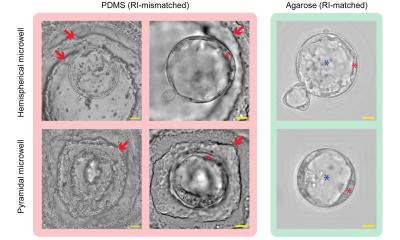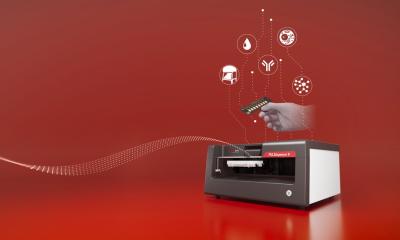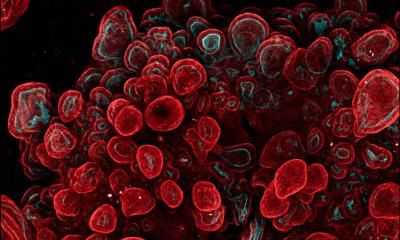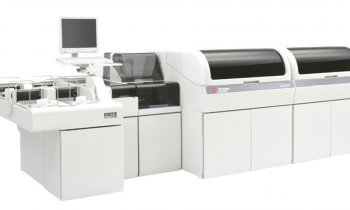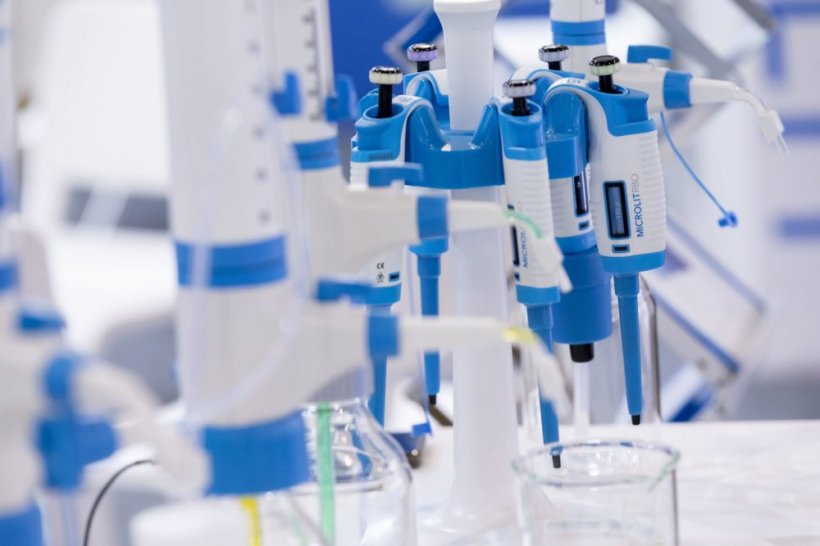
News • MEDICA 2020
virtual.MEDICA presents specialist topics in laboratory medicine
How can diagnoses be given even faster and more securely, aided by cutting-edge scientific findings? How can a multitude of information be linked and concatenated to elicit new therapy options? The MEDICA LABMED FORUM seeks to respond to these and many other questions. This year, the MEDICA LABMED FORUM will offer a high-profile programme with top speakers which is free for registered online visitors.
This programme will be held digitally due to the pandemic and can be accessed via the Conference Area in virtual.MEDICA on all days of the trade fair from 16 – 19 November 2020.
The sessions in the forum focus on the topics microbiology and infectious diseases, cardiology and oncology and, of course, COVID-19. In addition, young scientists and the industry glimpse into the future together and present promising trends in laboratory medicine. The organiser of this series of events is Prof. Dr. Georg Hoffmann from Trillium, the medical publisher, in cooperation with the German Heart Centre Munich (DHM).
Day 1: Microbiome diagnostics, infection diagnostics and breathomics
The series of events kicks off on 16 November (from 12:00 p.m.) with the microbiome/infection diagnostics and breathomics themes, chaired by Prof. Dr. med. Beniam Ghebremedhin (Witten/Herdecke University, HELIOS Wuppertal University Clinic).
Microbiome analytics is primarily the genomic analysis of all bacteria and viruses which live within the human organism. Microbiome research is fascinating due to the rapid growth in knowledge obtained over the past decade and also due to the diverse interconnections that it has to a multitude of conditions which affect swathes of the population, from obesity to depression. The contributions are based around the primary diagnostic and therapeutic applications.
Following an introduction to the topic, with explanations of the analytical standards by Prof. Dr. Andrè Gessner, Prof. Dr. Ernst Holler clarifies how this research is used in oncology. Both of the doctors come from the University Hospital Regensburg. The next two talks look at the significance of microbiotics for the central corporeal communication axis, the gut-brain axis, and for gastroenterology. The speakers are Prof. Dr. Jonathan Swann, Imperial College / London and Prof. Dr. Simona Cristescu, Institute for Molecules and Materials / Nijmegen.
The next part of the programme is all about breathomics. Here, the volatile metabolome, the characteristic metabolic properties of exhaled breath, is analysed. This contains many gaseous substances which predominantly come from the lungs and blood of the patient. A well-known example of this are the checks police carry out to test blood alcohol content via breathalyzer.
Breathomics, from a microbiological point of view, also provide information on respiratory tract infections and any potential bacterial miscolonisation of the gut. Prof. Dr. Agnieszka Smolinska, Maastricht University, pays testament to the use of this analytic technique in gastroenterology. Dr. Wolfgang Vautz, ION-Gas GmbH, presents a new procedure for respiratory analysis in his speech. Prof. Dr. Jonathan Swan and Prof. Dr. Wieland Vogt, from the Steinbeis University of Berlin, explore the role of volatile metabolites within the context of the gut-brain axis and applications for monitoring influenza.
Day 2: Digitalisation, computational biology and genetics
The second day of the virtual event, 17 November (from 12 p.m.) is chaired by Prof. Dr. med. Stefan Holdenrieder of the German Heart Centre Munich. The first half is dedicated to digital cardiology. The paperless hospital campaign aims to record all information from the patient’s treatment and diagnosis digitally and employ it effectively. Dr. Dr. Moritz von Scheidt, of the German Heart Centre Munich, discusses the organisation of data streams and innovative networks for personalised forms of healthcare, particularly for coronary heart disease, in his lecture. Blood pressure, heart rate, stress levels - more and more digital measuring devices are supplying the health-conscious with a huge amount of data on a wide variety of bodily functions. The sports doctor Prof. Dr. Billy Sperlich of the University of Würzburg tells us how this personal data can be rendered useful for recreational sports lovers, athletes and patients in the rehabilitation sector.
Naturally, this begs the question: How can the complexity inherent in these growing data volumes be simplified? This biostatistical question will be explored by Prof. Dr. Frank Klawonn, of the Helmholtz Centre for Infection Research (HZI) in Brunswick. The European Union has issued a regulation on the usage of in-vitro diagnostic medical devices. After a transition period of five years, all medical products, including software products, must undergo mandatory quality tests from 2022 onwards. The essential aspects of this regulation are presented by Dr. Sebastian Grömminger of the Johner Institute in Konstanz.
The MEDICA LABMED FORUM continues on to oncology, where the focus lies on blood analyses (key words: liquid biopsy and exosomes). In his talk, Dr. Frank Diehl, a scientific advisor from Hamburg, looks at new developments in examining circulating tumour DNA (ctDNA) in blood plasma which is used to detect tumours at an early stage. NGS deep sequencing and combination with tumour-associated proteins play an increasingly important role in evidencing a number of tumour-specific mutations and epigenetic changes in ctDNA.
Dr. Niroshan Nadarajah, a computational biology specialist from the Munich Leukaemia Laboratory (MLL), discusses the opportunities for improving leukaemia diagnostics using artificial intelligence, undertaking better classification using gradual differentiations and increasing prognostic validity. Prof. Dr. Michiel Pegtel, Head of the Liquid Biopsy Centre at the University of Amsterdam, concentrates on extracellular vesicles and exosomes which are emitted into the surrounding environment by tumour cells, among other elements, in his talk. He investigates the question of how this reflects the tumour’s biology and how it can be employed for cancer diagnostics and therapy. Prof. Dr. Bernd. Giebel, from the University of Essen, picks up on this topic and illustrates new therapeutical approaches in immunomodulation with the help of exosomes obtained from stem cells.
Day 3: laboratory medicine during the COVID-19 pandemic
“Laboratory medicine has never been more present in the public eye is now, in the corona pandemic. What’s in high demand everywhere? Testing, testing, testing. Therefore, we’re making the diagnostic and clinical aspects of the COVID-19 pandemic the focal point of the day here on Wednesday 18 November”, states Prof. Dr. Hoffmann.
The speeches on the third day (again from 12 p.m. onwards) are chaired by Prof. Dr. med. Gunther Hartmann of the University of Bonn. The speeches concentrate on COVID-19 diagnostics, mass screening of the population and the quality control that this requires. We also take a look at new developments in COVID-19 testing technology and current options for testing immunity to the SARS-CoV-2 virus. With a capacity of over one million coronavirus tests per week (as of October 2020), Germany is the country that is leading by example in this sector.
The role of laboratory medicine diagnostics in monitoring the course of COVID-19 infections and in estimating the incidence of severe cases will also be illuminated. Findings on patients’ genetic susceptibility to having a severe case of COVID-19 will also be a subject of discussion, along with models which show how potential (local) overload of the healthcare system can be forecasted.
Day 4: Laboratory medicine specialists meet innovative industry
At the end of this forum, two worlds will be brought together. Young scientists and laboratory medicine specialists will report on their research projects on biobanking, liquid biopsy and other trends in laboratory medicine and diagnostic companies will present innovative test procedures for COVID-19 on 19 November. This day is held under the aegis of the German Society for Clinical Chemistry and Laboratory Medicine (DGKL, Young Laboratory Division) and the Diagnostics Industry Association (VDGH, Life Science Research Group).
Source: MEDICA
30.10.2020



